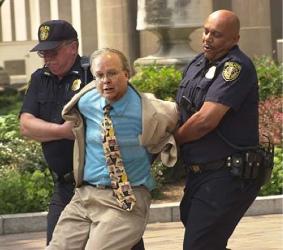
(From Wikipedia.com)
It is, perhaps, a testimony to Simone Weil’s spiritual insight that people with differing views from hers commended her thought and life. From religious conservatives to liberals, political conservatives to left-wing, believers and atheists have praised her. But Weil came to religion from a purely secularist and atheist milieu.
Weil was born in Paris (in 1909), and she was the younger sister of mathematician André Weil. Her ancestry was Jewish, but Simone and André were raised agnostic. Her brother was a math prodigy and Simone herself exhibited precociousness early as well-—reading at an early age books well beyond her years.
Weil excelled from a young age, becoming proficient at Ancient Greek at 12. She came second in her class at the École Normale Supérieure, ahead of Simone de Beauvoir in third place. (First class honours went to a young woman who pursued an undistinguished career in the French public service and was never heard of again.)
In her late teens, she became involved in the worker’s movement. She wrote political tracts, marched in demonstrations, and advocated worker’s rights. At this time she is a Marxist, pacifist, and trade unionist.
She received her teaching diploma in 1931, and becomes a teacher of philosophy at a girls’ school. During this time and for the rest of her life she suffers terribly with migraines and sinusitis. In 1933, she participates in the general strike throughout France by the worker’s unions, protesting unemployment and wage cuts.
In 1931, Weil became a school teacher, a profession she practiced in between punishing stints at factories and farms, designed to increase empathy with the working class. Though she considered herself a pacifist, in 1936 she joined the Republicans in the Spanish Civil War. However, her clumsiness repeatedly put her corps at risk; finally she suffered serious burns which caused her to leave Spain and travel to Assisi to recuperate.
In 1934, she takes a year’s leave of absence and works incognito in two factories as a laborer. Despite her ill health and natural awkwardness, she manages to get through several months. Returns to teaching in 1935, but gives most of her money away. For a month in 1936, she works on a farm, and then later that year decides to observe and help in the fight against Fascism in Spain. While in camp, she accidentally pours hot oil on herself and has to go to hospital.
In 1937, she continues to write essays on labor and management issues, and war and peace. Then in the spring she experiences a religious ecstasy in the same church that Saint Francis of Assisi had prayed in. She prays for the first time in her life. She has another, more powerful revelation in 1938. From this time on, her writings take on a more mystical and spiritual content, while retaining their focus on social and political issues. She was attracted to Roman Catholicism but refused baptism, fearing that the consolations of organised religion would impair her faith.
During World War II, she lived for a time in Marseille, receiving spiritual direction from a Dominican friar. In 1942, she travelled to the USA and afterwards to the UK. In London, she became a French Resistance worker. Her health had always been frail, and the punishing work regime she assumed for the Resistance soon took its toll. In 1943 she was diagnosed with tuberculosis and instructed to rest and maintain a generous diet. However, the idealism which had always informed Weil's political activism and material detachment did not permit her to accept special treatment.
In 1915, when she was only six years old, she swore off sugar in solidarity with the troops entrenched along the Western Front. Twenty-eight years later, Weil limited herself to the rations she imagined her compatriots were subjected to in the occupied territories of France. Her condition quickly deteriorated, and she was moved to a sanatorium in Ashford, Kent, England. She died in August 1943, surrounded by a few devoted friends.
Most of her work was published posthumously.
"Humility is attentive patience."
"Culture is an instrument wielded by professors to manufacture professors, who when their turn comes will manufacture professors."
"A test of what is real is that it is hard and rough. Joys are found in it, not pleasure. What is pleasant belongs to dreams."
"Two prisoners whose cells adjoin communicate with each other by knocking on the wall. The wall is the thing which separates them but is also their means of communication. It is the same with us and God. Every separation is a link."







